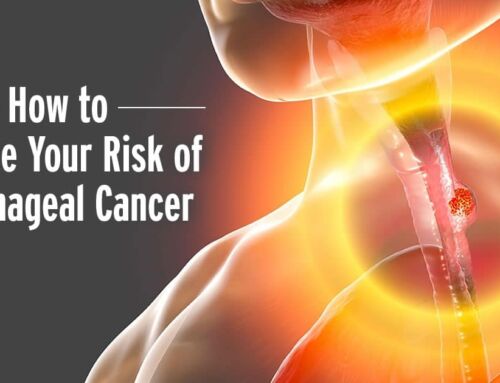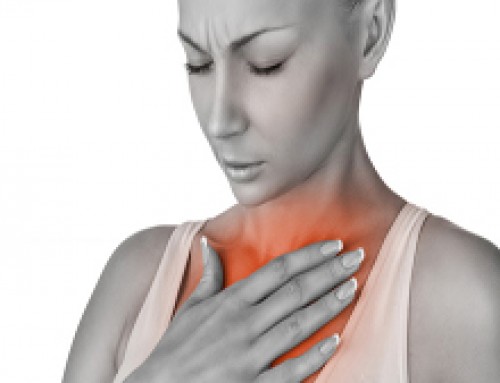Football season is finally here! For many people, this means grilling out, constant snacking, and staying up late watching Sunday night football.
Now that the season is in full swing, you may be noticing a familiar theme. And, no, I’m not talking about your team’s record. I’m talking about heartburn.
Sometimes, certain lifestyle choices can wreak havoc on your digestive system. This article will discuss how to avoid heartburn so you can enjoy game day pain-free.
Do I Have Reflux or Heartburn?
Acid reflux occurs when the stomach contents flow backward into the esophagus. Heartburn — a burning pain that creeps into the mid-chest, below the sternum — is a symptom of acid reflux. Interestingly, only a small number of reflux events produce heartburn.
Other symptoms of acid reflux may include:
- Regurgitation
- Sour taste in the back of the mouth
- Nausea
- Vomiting
Many people experience occasional acid reflux that is easily managed with dietary changes and over-the-counter medication. But if reflux becomes a chronic problem, patients can develop gastroesophageal reflux disease (GERD).
While reflux and GERD share some similarities, they are actually two separate conditions. GERD is a more frequent form of reflux that occurs two or more times per week. Most people can control symptoms of GERD with medication. However, more severe cases may need surgery.
If left untreated, GERD can damage the esophagus and increase your risk of the following complications:
- Strictures
- Ulcers
- Acid burn
- Barrett’s esophagus
- Esophageal cancer
Why Does Heartburn Occur?
Heartburn occurs when the muscles in the lower esophageal sphincter (LES), the valve that connects the esophagus and stomach, spontaneously relax.
During normal digestion, the LES opens when you swallow to allow food and liquid to pass into the stomach. After swallowing, the LES closes to keep the stomach contents contained within the stomach.
When the LES does not remain tightly closed like it’s supposed to, stomach acid and bile can leak into the esophagus. This can irritate the inner lining of the esophagus and cause heartburn.
10 Ways to Avoid Heartburn
Heartburn is often preventable by making lifestyle modifications. Keep reading to discover 10 ways to avoid heartburn.
1) Avoid Trigger Foods Known for Causing Heartburn
Eating acidic and high-fat foods can increase symptoms of heartburn by relaxing the LES. Fatty foods are also harder to digest, which causes the stomach to produce more acid and empty more slowly.
You should avoid the following trigger foods for heartburn:
- Tomato-based foods
- Citrus fruits
- Greasy foods
- Potato chips
- Fatty meats
- Cheese
- Coffee
- Chocolate
- Peppermint
2) Avoid Lying Down or Heavy Lifting After Eating
Sitting upright on the couch while watching football may not be as comfortable as lying down. But this postural change can lower your risk of heartburn by reducing pressure on the LES.
Keeping your head elevated can decrease the occurrence of acid reflux and improve the time it takes to clear the esophagus of acid. If you’re watching a late-night game, try to avoid eating 2 hours before bedtime to reduce the amount of stomach acid available for reflux.
3) Limit Alcohol Consumption
I’m not going to tell you to avoid alcohol altogether. However, you should limit excessive drinking.
Alcohol relaxes the LES and stimulates the production of stomach acid, which makes it more likely to splash back up your throat. So think twice before you indulge in too many drinks on game day!
4) Don’t Overeat or Eat Too Quickly
Eating a large meal causes the stomach to expand, which applies pressure to the LES. Keeping your snacking under control can prevent your stomach from overfilling.
Eating too quickly can also increase abdominal pressure by making you swallow air. The stomach releases gas by belching, which relaxes the LES and increases the chances of acid reflux. Chewing your food thoroughly can help you slow down during meals.
5) Avoid Carbonated Drinks
All carbonated drinks contain carbon dioxide, which can cause gas and bloating. Skip the drinks with bubbles and opt for better choices like lemon water, plant-based milk, chamomile tea, and smoothies.
If you want to enjoy an alcoholic beverage on game day, gin and vodka are low acidity options. Just remember to drink plenty of water to improve the digestive process.
6) Avoid Weight Gain or Being Overweight
Excess abdominal fat increases pressure on your stomach, which can squeeze the stomach contents upwards into your esophagus. A decrease in waist circumference can improve reflux and heartburn in people who are overweight or recently gained weight.
7) Don’t Wear Tight-Fitting Clothes Around Your Midsection
Tight-fitting clothes apply pressure to your abdomen, which increases the risk of heartburn. An oversized jersey and a loose waistband are the perfect solutions to keep you comfortable while tailgating this football season.
8) Quit Smoking
Nicotine weakens the LES, which makes you more susceptible to heartburn. Smoking also stimulates stomach acid production. Quitting smoking can decrease the recurrence of heartburn.
9) Review Your Medications
Certain medications can negatively affect the LES. If you’re experiencing heartburn symptoms, you should review any medications you’re taking with your doctor to see if they might be relaxing the LES, interfering with digestion, or irritating an already inflamed esophagus.
10) Avoid Watching the Huskers Play Football
I grew up in Nebraska and will be a Husker fan for life, but man, do they give me heartburn lately…
When to See a GI Doctor for Heartburn
Most patients experience esophageal reflux at some point in their lives. If it’s just a few symptoms that come and go and are easily controlled with diet changes or medication, it’s unlikely that you need to seek medical care.
If your symptoms persist longer than a couple of weeks or do not improve with over-the-counter medications, then I recommend evaluation by a physician. If your symptoms include difficulty swallowing or pain with swallowing, you should see someone as soon as possible.
I worry about the progression to Barrett’s esophagus or esophageal cancer in my patients with long-term reflux. The best way to prevent that from happening is to see a GI doctor and get your acid reflux under tighter control.
If you have heartburn or reflux symptoms, don’t just live with them — see someone. The majority of the time, we can do things to make your symptoms and your life better. All you need to do is call my office at 210-615-8308 or click the request an appointment tab on my website, and we will call you to schedule an appointment.




